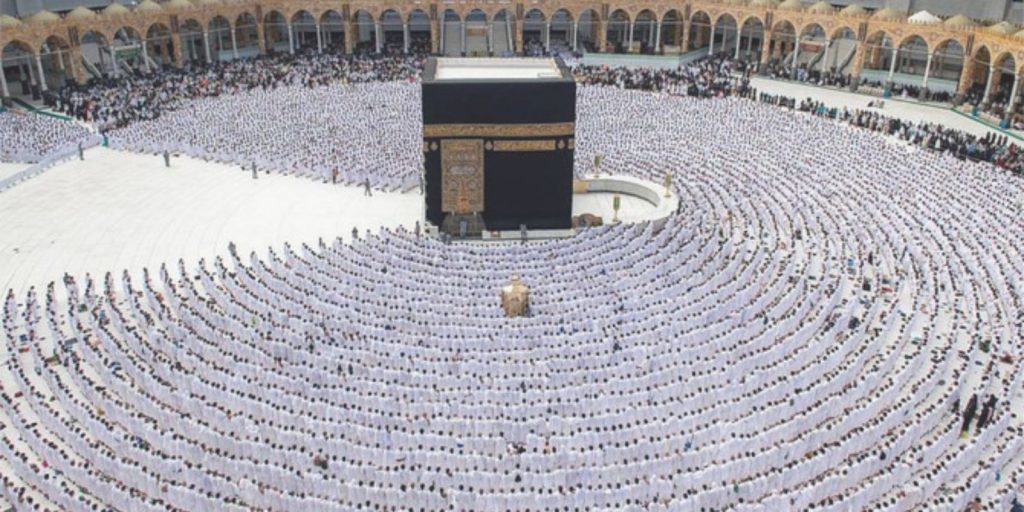Unveil Hajj Policy 2024 In Pakistan
Unveiling the Hajj Policy 2024
Dr Aneeq Ahmed, the caretaker Minister for Religious Affairs in Islamabad, recently unveiled the eagerly anticipated Hajj Policy 2024. Breaking new ground, he announced that the upcoming Hajj pilgrimage would be more affordable than ever before in Pakistan’s history.
Table of Contents
Surprise for Pilgrims

In a groundbreaking move, the government introduced a 20-day short package, albeit at an additional cost of Rs80,000 compared to the standard Hajj package. This bold step aims to accommodate the diverse needs of prospective pilgrims, offering them flexibility in their pilgrimage duration.
Hajj Seats Granted
Saudi authorities have generously allocated 179,000 Hajj seats to Pakistan, with a noteworthy provision—half of these seats are reserved for private Hajj operators. This allocation not only enhances accessibility but also emphasizes the collaboration between the two nations in facilitating this sacred journey.
Sponsorship Scheme:
In a bid to make Hajj accessible to overseas Pakistanis, the sponsorship scheme has been introduced. This allows expatriates to perform Hajj and even nominate someone on their behalf. However, a unique condition accompanies this scheme—the payments will only be accepted in US dollars, reflecting a global approach to pilgrimage facilitation.
Application Window:
For those aspiring to embark on the government Hajj journey, the application window spans from Nov 27 to Dec 12, 2023. This narrow timeframe necessitates prompt action, adding a sense of urgency to the process and fostering a more streamlined application procedure.
Affordable Departures:
The sponsorship scheme charges vary based on the departure region. Departures from the northern region incur a fee of $3,800, while those from the southern parts pay slightly less, at $3,765. This nuanced approach ensures fairness in cost distribution, catering to the diverse economic landscape of the country.
Government’s Commitment:
The caretaker minister revealed that the interim government dedicated three months to formulate the Hajj Policy 2024. This meticulous planning resulted in a significant cost reduction, with this year’s expenses estimated at around Rs1.07 million—a commendable Rs100,000 less than the previous year.
Inclusive Initiatives:

A notable inclusion in the Hajj Policy 2024 is the government’s commitment to providing each Hajj pilgrim with a 30kg suitcase. This alleviates a common concern for pilgrims and enhances their overall experience. Additionally, the ‘Road to Makkah’ project, initially encompassing Islamabad, now extends to Karachi, with plans to include Lahore’s airport—a testament to the continuous improvement of pilgrimage logistics.
Saudi’s Demand for Operator Reduction
In a move to enhance efficiency, the Saudi government has urged a significant reduction in the number of Hajj operators—from 900 to a mere 46. This streamlining initiative aims to optimize overall Hajj operations, ensuring a smoother experience for pilgrims.
Women and the Hajj Journey
Amidst the announcements, the Council of Islamic Ideology (CII) clarified its position on women performing Hajj without a mahram (a close male relative) companion. The CII’s nuanced response, considering different schools of thought, highlights the complexity of this issue and the need for a balanced approach.
Conditions for Women Traveling Alone
The CII underscores the diversity within Islamic jurisprudence, stating that according to Hanafi and Hanbali schools, Hajj is not obligatory for a woman without a mahram. However, Jafria, Maliki, and Shafi’i schools permit women to perform Hajj without a mahram under certain conditions. Notably, a woman can proceed if accompanied by reliable women with parental or spousal permission.
In conclusion, the Hajj Policy 2024 marks a significant milestone in Pakistan’s pilgrimage landscape. With reduced costs, enhanced services, and streamlined operations, it promises a transformative experience for pilgrims as we anticipate the application window, the prospect of a more accessible and inclusive pilgrimage journey beckons.
